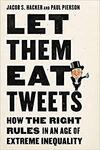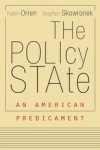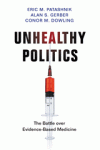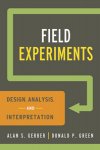Publications
About Our Publications
On this page you will find a list of publications by ISPS Affiliates, including peer-reviewed journal articles, policy briefs, and working papers.
When possible, Publications are linked to Projects and Data via the ISPS KnowledgeBase.
| Title | Author(s) |
Discipline |
Publication | Year |
|---|---|---|---|---|
| Reply to Bryan et al.: Variation in Context Unlikely Explanation of Nonrobustness of Noun Versus Verb Results |
Alan S. Gerber, Gregory A. Huber, Daniel R. Biggers, and David J. Hendry
|
Proceedings of the National Academy of Sciences | 2016 | |
| The Economic Security Index: A New Measure of the Economic Security of American Workers and Their Families (Technical Report) |
Jacob S. Hacker, Greg A. Huber, Philipp Rehm, Mark Schlesinger, Rob Valletta |
Economics | 2010 | |
| Disagreement and the Avoidance of Political Discussion: Aggregate Relationships and Differences across Personality Traits |
Alan S. Gerber, Gregory A. Huber, David Doherty and Conor M. Dowling |
Political Science | American Journal of Political Science | 2012 |
| A Field Experiment Shows That Subtle Linguistic Cues Might Not Affect Voter Behavior |
Alan S. Gerber, Gregory A. Huber, Daniel R. Biggers, and David J. Hendry |
Political Science | Proceedings of the National Academy of Sciences | 2016 |
| Why People Vote: Estimating the Social Returns to Voting |
Alan S. Gerber, Gregory A. Huber, David Doherty and Conor M. Dowling |
Political Science | British Journal of Political Science | 2016 |
| Is Affective Polarization Driven by Identity, Loyalty, or Substance? |
Lilla V. Orr, Anthony Fowler, and Gregory A. Huber |
Political Science | American Journal of Political Science | 2023 |
| The ‘Race Card’ Revisited: Assessing Racial Priming in Policy Contests |
Gregory A. Huber, John S. Lapinski |
Political Science | American Journal of Political Science | 2006 |
| Why Don't People Vote in U.S. Primary Elections? Assessing Theoretical Explanations for Reduced Participation |
Alan S. Gerber, Gregory A. Huber, Daniel R. Biggers, and David J. Hendry |
Political Science | Electoral Studies | 2017 |
| The Importance of Breaking Even: How Local and Aggregate Returns Make Politically Feasible Policies |
Alan S. Gerber, Gregory A. Huber, Patrick D. Turner, and John J. Cho |
Political Science | British Journal of Political Science | 2023 |
| The Effect of Electoral Competitiveness on Incumbent Behavior |
Sanford C. Gordon, Gregory A. Huber |
Political Science | Quarterly Journal of Political Science | 2007 |
| Sources of Bias in Retrospective Decision Making: Experimental Evidence on Voters’ Limitations in Controlling Incumbents |
Gregory A. Huber, Seth J. Hill, Gabriel S. Lenz |
Political Science | American Political Science Review | 2012 |
| Political Homophily in Social Relationships: Evidence from Online Dating Behavior |
Gregory A. Huber and Neil Malhotra |
Political Science | Journal of Politics | 2016 |
| Self-Interest, Beliefs, and Policy Opinions: Understanding How Economic Beliefs Affect Immigration Policy Preferences |
Alan S. Gerber, Gregory A. Huber, Daniel R. Biggers, and David J. Hendry |
Political Science | Political Research Quarterly | 2017 |
| Irrelevant Events and Voting Behavior: Replications Using Principles from Open Science |
Matthew H. Graham, Gregory A. Huber, Neil Malhotra, and Cecilia Hyunjung Mo |
Political Science | Journal of Politics | 2021 |
| Messages Designed to Increase Perceived Electoral Closeness Increase Turnout |
Daniel R. Biggers, David J. Hendry, and Gregory A. Huber |
Political Science | American Politics Research | 2023 |
| Identifying the Persuasive Effects of Presidential Advertising |
Gregory A. Huber, Kevin Arceneaux |
Political Science | American Journal of Political Science | 2007 |
| Big Five Personality Traits and Responses to Persuasive Appeals: Results from Voter Turnout Experiments |
Alan S., Gerber, Gregory A. Huber, David Doherty, Conor M. Dowling, Costas Panagopoulos |
Political Science | Political Behavior | 2012 |
| The Generalizability of Social Pressure Effects on Turnout Across High-Salience Electoral Contexts |
Alan S. Gerber, Gregory A. Huber, Albert H. Fang, Andrew Gooch |
Political Science | American Politics Research | 2017 |
| Perceptions of Deservingness and the Politicization of Social Insurance: Evidence From Disability Insurance in the United States |
Albert H. Fang and Gregory A. Huber |
Political Science | American Politics Research | 2019 |
| Measuring Misperceptions: Limits of Party-Specific Stereotype Reports |
Lilla V. Orr, Gregory A. Huber |
Political Science | Public Opinion Quarterly | 2021 |
ISPS Working Paper Series
ISPS advances interdisciplinary research in the social sciences that aims to shape public policy and inform democratic deliberation. The ISPS network includes scholars and students from many departments in the Faculty of Arts and Sciences and from Yale’s graduate and professional schools as well as select experts from other institutions. The ISPS Working Paper Series provides a platform for ISPS affiliates to make their work available for public consumption and discussion.
Featured Books by ISPS Faculty
ISPS Sponsored Publications
ISPS Politics & Policy Book Series: A series striving to place policy- and law-making in historical and comparative perspective, reflecting the broad, multidisciplinary character of ISPS.
ISPS Journal: A biannual publication that serves to highlight ISPS scholars’ publications and as a development piece for foundations and interested donors.
GOTV website: A website compiling results from a wide array of voter mobilization field experiments. Findings from these scientifically measured studies of various Get-Out-the-Vote methods offer valuable insight into which methods are most effective in mobilizing voter turnout (Note: the website indexes GOTV experiments published before 2006).
The Bulletin of Yale University includes several issues devoted to ISPS (PDF): 2000-2002, 2002-2004, 2004-2006, and 2006-2008.






